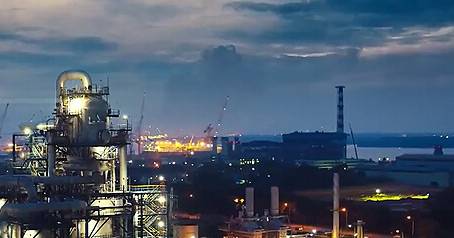Dez . 11, 2024 03:05 Back to list
hdpe conduit pipe
The Benefits and Applications of HDPE Conduit Pipe
High-Density Polyethylene (HDPE) conduit pipe has become a popular choice in various industrial and municipal applications due to its superior properties and benefits. The versatility of HDPE makes it suitable for a range of uses, predominantly for housing electrical and communication lines. This article explores the features, advantages, and various applications of HDPE conduit pipe.
What is HDPE?
High-Density Polyethylene (HDPE) is a thermoplastic polymer known for its high strength-to-density ratio. It is widely used in the manufacturing of pipes, containers, and geomembranes due to its resistance to impact, corrosion, and chemicals. The molecular structure of HDPE provides excellent performance in both environmental and structural applications, making it a material of choice for conduit pipes.
Advantages of HDPE Conduit Pipe
1. Durability and Longevity HDPE conduit pipes are renowned for their durability. They have a long lifespan, often lasting over 50 years, which makes them a cost-effective solution in the long run. The pipes resist degradation from UV radiation and other environmental factors, ensuring that they maintain their structural integrity over time.
2. Flexibility Unlike traditional materials such as PVC or metal, HDPE conduit pipes are highly flexible. This flexibility allows them to be installed in various configurations, reducing the need for fittings and joints, which can be points of potential failure. The ability of the pipes to bend also means they can navigate around obstacles, decreasing installation costs and time.
3. Corrosion and Chemical Resistance HDPE is inherently resistant to many chemicals, including acids, bases, and organic solvents. This makes it ideal for use in environments where exposure to corrosive substances is likely. Furthermore, HDPE pipes do not rust or corrode, ensuring that they remain reliable and reduce maintenance costs.
4. Lightweight One of the most significant advantages of HDPE conduit pipe is its lightweight nature. This property not only facilitates easier handling and installation but also reduces transportation costs. Lighter pipes can be moved and positioned without heavy machinery, making them ideal for both remote and urban installations.
hdpe conduit pipe

5. Environmental Sustainability HDPE is recyclable, contributing to sustainable practices in construction and infrastructure. The use of HDPE conduit pipe helps reduce the carbon footprint of projects, and many municipalities favor it for their eco-friendly attributes. In recent years, the emphasis on sustainability has encouraged more industries to switch to HDPE alternatives.
Applications of HDPE Conduit Pipe
1. Telecommunications HDPE conduit pipes play a crucial role in the telecommunications industry, providing protection for fiber optic cables. The flexibility and light weight are especially beneficial when installing networks across various terrains or in densely populated areas.
2. Electrical Works Electrical conduits made from HDPE are extensively used for housing electrical wires and cables. Their durability and corrosion resistance make them suitable for outdoor installations and underground applications, safeguarding critical electrical infrastructure from environmental damage.
3. Water and Wastewater Management While not the primary function of conduit pipes, HDPE has also found applications in water and wastewater management systems. Their resistance to chemicals and corrosion enables them to be used in various pipe configurations to manage stormwater drainage, sewer systems, and more.
4. Industrial Applications Industries that require robust piping systems often utilize HDPE conduits for a wide range of purposes, including the transportation of chemicals and abrasive materials. Their superior performance in harsh environments makes them a go-to option.
5. Municipal Infrastructure Many municipalities are transitioning to HDPE for communal infrastructure projects. From street lighting to utility management, the benefits of HDPE allow local governments to invest in sustainable and durable solutions for their communities.
Conclusion
HDPE conduit pipe has established itself as a reliable and efficient option for various applications. Its durability, flexibility, and resistance to environmental factors, combined with its lightweight properties and recyclability, make it a compelling choice across industries. As the demand for sustainable and long-lasting solutions increases, HDPE will likely continue to play a pivotal role in the development of modern infrastructure and utility systems.
-
High Quality PVC Pipe Fitting - Durable & Leak-Proof Solutions
NewsJul.28,2025
-
High-Quality PVC Rigid Sheet (Glossy Surface) for Industrial Use
NewsJul.26,2025
-
High Quality PVC Rigid Sheet (Embossed Surface) for Industrial Use
NewsJul.25,2025
-
High Quality PVC Soft Sheet for Flexible Applications | Durable & Customizable
NewsJul.24,2025
-
High-Quality UPVC Water Supply Pipe for Durable Plumbing Solutions
NewsJul.23,2025
-
High-Quality PVC-M Water Supply Pipe for Reliable Plumbing Solutions
NewsJul.22,2025

